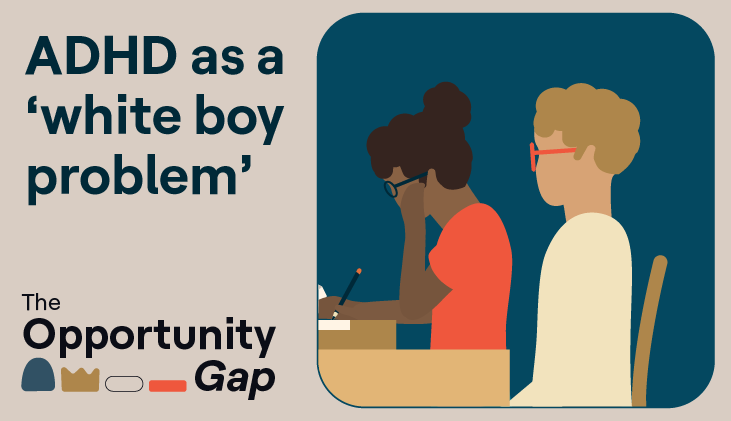Stay in the know
All our latest podcasts delivered right to your inbox.
What prevents young people of color from recognizing their learning and thinking differences? According to user researcher Yasmeen Adams, there’s a perception by some that ADHD is a “white boy problem.”
Hosts Julian Saavedra and Marissa Wallace welcome Yasmeen to the show to discuss the results of interviews with dozens of young people of color with ADHD. The hosts ask pointed questions about how experiences differ between Black youth and other people of color. Yasmeen also shares why, as a Black person with ADHD, this research is meaningful to them.
Related resources
See the trailer for “Vivo,” the Netflix film the hosts talk about in the episode.
Watch a video with poet LeDerick Horne on being Black with a learning disability.
Worried about labeling your child with ADHD? Read this teacher’s message to Black parents.
Read why young Black writer Ryan Douglass couldn’t ask for help as a young child.
Episode transcript
Julian: Welcome to "The Opportunity Gap," a podcast for families of kids of color who learn and think differently. We explore issues of privilege, race, and identity. And our goal is to help you advocate for your child. I'm Julian Saavedra.
Marissa: And I'm Marissa Wallace. Julian and I worked together for years as teachers in a public charter school in Philadelphia, where we saw opportunity gaps firsthand.
Julian: And we're both parents of kids of color. So this is personal to us. Hey, Marissa.
Marissa: Hey, it's great to be back
Julian: Hey, Andrew.
Andrew: Hey, how are you doing?
Julian: Oh, just excited. Just been watching a little bit of Netflix here and there with the kids. And I happened across one of the dopest movies I have seen in a long time. It's called "Vivo." Have you both seen it?
Marissa: Absolutely. Multiple times.
Andrew: I have not, unfortunately.
Julian: Oh, Andrew, let me put you on. You want to talk about representation? "Vivo" is amazing. It's a Lin-Manuel Miranda and it represents my heritage — I'm part Cuban. Soy cubano, soy Julian Saavedra. And my children absolutely love it. And it's all about representation in a positive way. So Marissa, you're into it too?
Marissa: Yes. Lincoln actually made me — not made me — I can't even say that word because I willingly watch it with him. He was like, can we watch "Vivo" again? So, yes. And I agree with you. I feel like the representation piece, we constantly appreciate that Netflix at least will highlight and put some things out there that we can relate to.
Julian: Yeah, listeners, please. You have any other really solid examples of positive representation for all communities out there, especially for the younger kids? I'm always looking for something cool for my own kids. Please share with us, because we want to know more and where to look for cool things to check out. So, Andrew, what are we talking about today?
Andrew: Julian, you know, as one of the show producers, I often book guests. And I also do research for the topics that you and Marissa want to talk about. For this episode, I've invited one of my colleagues, Yasmeen Adams. They're a user researcher who does a lot of work on understanding how young people of color perceive ADHD. What's really cool is that Yasmeen Adams is also a young person of color with learning and thinking differences. So I want to welcome Yasmeen Adams to the show.
Julian: Yasmeen, welcome. Welcome, welcome. Hello.
Yasmeen: I am so excited to be here.
Julian: So many questions, but before we get going, Yasmeen, can you tell us what is user research? What do you actually do?
Yasmeen: So user research is a really big umbrella term of the type of research that we do here at Understood. But in sort of like layman's terms, one of the big aspects of my job is that we interview a lot of people and I have a lot of conversations with people with learning and thinking differences, especially people of color and young people as well.
And what we really try to do with the research here is that we really try to understand the journey that a person goes through in life. What are some of the moments that they experience, whether it be like going to school, getting a new job, or other personal things. And we have this, like, a variety of conversations related to their learning and thinking differences and trying to understand how can we, as an organization here at Understood, make an impact in the lives of people with learning and thinking differences — ADHD, dyslexia, things like that.
Marissa: I was able to read through some of the research you've done in those interviews — it's so empowering. So what kind of insights have you found, have you gathered about the perceptions of ADHD by young people of color? I know we're kind of jumping right in.
Yasmeen: Yeah, so we just finished up another round of user research. One of my biggest missions here at Understood is to make sure that we're amplifying diverse voices and stories. We've spoken to about 35 individuals of color. We know that like people of color can have ADHD, and they tend to have rates just as high as other populations.
But what I really found interesting from some of the recent research that we've done is that there is this perception, especially amongst younger people of color, that ADHD is a white boy problem. Point blank.
Julian: White boy problem.
Yasmeen: Yeah.
Julian: Say more about that white boy problem. Interesting.
Yasmeen: A lot of the research that we've done, where sort of this white boy problem comes up, and how and why this is a perception amongst younger people of color, who themselves also have ADHD or other sort of learning challenges themselves, just lack of mainstream representation. And they're just like, well, I've never seen anybody who looks like me, who has it. And I'm, you know, I'm not like the white boy who was like jumping off the walls. I'm not the hyperactive type of ADHD. I didn't think I had ADHD until years later until I was having issues, managing some of my challenges. And it was only until then once I sought out professional help, I'm like, oh, I didn't know I could have ADHD. Cause I didn't, I didn't see that. That's where this perception of white boy problem comes from.
Julian: I have a lot of questions regarding is there a differentiation between ethnicities and within races, right? So some of their interviewees were recent immigrants or their families were immigrants. And I wonder, how does that experience color their experience with and their perception of ADHD versus a person of African American descent, or a biracial person, or regional differences.
Yasmeen: It comes from sort of two points. One is this idea of like a cultural and a generational stigma around learning differently and having learning challenges period. So a lot of the things we've heard from people is that like their parents said that "We don't have this back at home." "There's no such thing as ADHD." "There's no such thing as dyslexia." "This is an American thing." And we heard that a lot through people who are from immigrant communities, all across the cultural board. And a lot of that tends to come from stigma, especially passed down from generations. There was one person who we talked to, whose parents who are immigrants. When their teachers brought up that, you know, they may have ADHD, they were just like, "No, this is Western medicine. We don't believe in this."
In our research as well, we saw that a lot of people when ADHD is sort of identified in people of color, other people look at those behaviors that are associated with ADHD in them as a disciplinary issue. But instead of teachers or other people realizing that it may be related to like maybe ADHD or things like that, it was sort of like looked as, as like you're being disruptive. Last point about that as well, is that there's also a culture of silence and culture of shame that is associated with learning disabilities.
There's this saying: "What's said in this house stays in this house." And so a lot of times, people of color who do have learning and thinking differences are not able to really learn the language around what they're going through, because we just don't talk about it.
Marissa: It's really eye-opening, because I think for me, when I think about students and I think about my experiences and then comparing them to the research you've done and trying to connect the pieces — and the age difference, right? The students I'm working with are K through 12, most of the time. But thinking through like this perception and that culture piece of it, that from an educator standpoint, when I'm working with families and as a special educator, when I'm having these conversations, and it really is pushing me to think about my own perception and my own assumption of what this family knows or doesn't know about said diagnosis, when we're coming to these meetings and we're saying, "Hey, your student is going to receive services because they have ADHD" and just kind of oftentimes not unpacking that with the family to see what their thoughts are. And I think it depends family to family, but again, that's coming from the K through 12. So it's interesting to hear that you're speaking to some young adults and how they feel really disconnected from that.
And it makes me think about what was their schooling, right? What did that look like for them, and what was lacking there? And what conversations didn't happen that should've happened to make them feel included? Because the goal at this point, ideally, is this idea of inclusive education for everyone.
Julian: Yeah. I mean, I feel like I have two separate experiences. There's one as me growing up as a Black boy and then now a man, and then as an educator. And I went to Catholic schools my whole life, and special education wasn't a thing. I didn't even know what ADHD was until I went to college. And I went to a primarily white institution, the biggest culture shock of my life, but that was the first time that I got exposed to what ADHD was.
And people kind of joke about it now, but I found out a lot of people in college would have diagnoses just because it would allow them to get medicine. And in some cases like, they'd get Adderall. Now, look, I'm not trying to get on anybody. I know that medication is a really good thing for a lot of people. It changes lives completely, I get that.
But in this case, this is my first time in this primarily white institution. And, you know, it's just me and a lot of people that I saw using this, they weren't using it the way it was designed to be used. And so it was just a really big shock and it was something that I had no idea was even out there. I didn't know it was a thing. But it really shaped the way that I viewed how they were using this and a lot of questions came up. It was my first exposure to what ADHD even was. So I went from zero to 18 and I had never even heard of it. Whereas as an educator, it was a very different experience.
And, you know, I would kind of push back on this research a little bit and say a lot of the families that I've dealt with over the course of 18 years in education, they do have a pretty good sense of what special education entails. And they do come to the table with a pretty good working knowledge of what ADD or ADHD is. So I wonder, where is the disconnect? Like, is it a generational thing? Is it because the students that — the young people you were speaking to — maybe they're a little bit older? Maybe it's a regional thing? Because that really hasn't been my experience as an educator.
Yasmeen: Yeah. So that's a great question. The general age was from 21 to 40 of some of the participants we spoke to. And so sort of how they came to Understood was after they sort of were able to get diagnosed and to really understand like some of their challenges and how that was related to their diagnosis later on in life. We did have some people who were diagnosed earlier, but it wasn't until they were out of school in their professional lives, working lives, where they were able to sort of look back and be like, you know, thinking back on it now, I feel like a lot of things my parents have said and like, or what they didn't say or what they've implied about people with learning and thinking differences, like kind of affected me and how I viewed myself and the challenges I faced. I think that's also sort of a big part of that as well as looking back retroactively. Putting the pieces together and how they were treated.
Marissa: Sure. That was helpful to know the age group, that 20- to 40-year-old. That is interesting, right? Cause it's like if they are having conversations, their parents, then we're expecting them are going to be obviously 40 to 70-ish range. With that, how do they work through their own as an individual, but also like potentially changing the mindset or getting support from family that might have for the last 20 years had one mindset towards ADHD, but now that they have a child or a young adult child, right? A grown up. Do you get any success stories or like turning points where their families were able to like, come on board and understand them better and be supportive?
Yasmeen: There have definitely been a lot of success stories in changing the narrative around learning and thinking differences with their parents and like really being able to like explain their challenges and like what they were going through and who they are now. But before they could even do that, though, they kind of have to figure that out for themselves.
And so when we were doing this research, how they kind of knew that, that, oh, this was what was affecting me. ADHD was affecting me. It was once they hit a really low point in their lives and it was only until then. And they were able to talk through some of the challenges that they were facing throughout life, was where they sort of had this light bulb moment where I was like, oh, so that — it was related to ADHD? Or, oh, this was, it was related to dyslexia? I never knew.
And it's a sigh of relief because it helps them sort of apologize, in a sense, to their younger selves. Like, no, you weren't stupid or no, you weren't, you weren't slow or anything like that. You just had different challenges and a different way of thinking.
And then there were also some stories where they are just like, OK, pretty neutral or pretty dismissive about it. And so it was sort of a mixed bag of responses from parents. But I think one of the coolest things about it was that oftentimes the people who we talk to once they sort of learned about their learning and thinking difference, they start to become role models in their own lives, and becoming the role models that they wished they had when they were younger.
Julian: See, that's a blessing in and of itself, right? Like you take the experience and try to make sure that somebody else has something better than what you did. Let's pivot a little bit and focus on the here and now. So a lot of the people you are able to speak with are no longer in K through 12 education, but a lot of our listeners are families that have kids right now that are in the mix, right? Like kids that are — us included, like Marissa and I both have young children, and we're both in education with a K through 12 focus.
So thinking about young people today: One, there is such a wealth of information out there now that was not in existence even five years ago. So the information is out there, but it seems people have an understanding of what learning and thinking differences are. Is that then translating to accepting it and not having a stigma behind it? And I'm wondering, based on the conversations you've had with some of these young people, but older young people than who we're dealing with, what can they do, especially families that have kids now, and they might have their own feelings about ADHD that are not necessarily positive. How can they start brokering some of those conversations? How can they start opening up a space to have a talk and really change some of those perceptions?
Yasmeen: One of the questions we asked was like, what do you think could have helped you when you were younger, when you were struggling and not really understanding why you were struggling?
A lot of the responses that we heard were that they wished there was some form of representation. They wished they had someone that looked like them, who has the same issues as them, just to know that they're not alone in the struggle. Cause I was, that was sort of the biggest thing, was that they just felt so alone in that struggle and felt no one understood them.
Julian: Shout-out to Simone Biles. We just had a long conversation about her in our last podcast, but she's the person that comes to mind.
Yasmeen: Absolutely. And so it's this: Having anybody, whether it's someone close to them, a family member or a teacher, or things like that, sharing their experiences or having even someone like Simone Biles or someone that are also going through the same thing really, really can bring a positive impact into how young people of color who have learning and thinking differences view themselves — and can view themselves in a more positive light and move them from this negative space of "I can't do anything. I'm dumb. I'm this, I'm that." And really moving them forward in their journey. Representation can be such a powerful tool, pushing young people to really start to view themselves in a more positive light.
Julian: Say that out loud for the people in the back, we need representation for everything.
Marissa: Can we get your former interviewees? Would they be interested in doing some mentoring, some peer chats, some groups? I feel like it's like when you connect and find people who are comfortable sharing their story, whether they're still currently in that K through 12 setting, or they're adults and now reflecting and looking back, I'm like, wow. This would have been really helpful had I had this type of person or this type of information when I was in school.
Julian: And then that's something for, you know, all of our families out there, you know, really pushing the school to create opportunities for mentorship. Where are you brokering these conversations? Where are you creating relationships for students who might have gone through the process already and have been successful? I mean, that's a win-win for everybody, for the students that are serving as mentors, for the students that are receiving the mentorship. I mean, and just on your own, finding and seeking out representation in the media, but also in your real life, is a really great space to start.
Yasmeen: But another thing that we also heard was also the power of social media. A lot of the people we talked to who got diagnosed later in life, kind of learned about their symptoms through social media. So social media could be a super great way to just get young people to just start to understand that you're, again, you're not alone in this.
I also want to note as well, that it's super important, especially for parents, to understand social media literacy and make sure that the things you are reading are like legit and not like, and not like, I don't know, from like some weird internet wormhole. But once you sort of get past that, social media can be such a powerful tool to just help people find other people that are like them too.
Julian: Right. I mean, I'm thinking of a lot of our students use Instagram and TikTok, there's tons of Facebook groups out there. But at Understood, we also have something that parents might be able to use, too. Andrew, you want to tell the people about it?
Andrew: Yeah, absolutely. We have an app called Wunder. That's Wunder with a U. And it's a great place for not only families to talk to each other, but also young people to sort of learn a little bit more about their learning and thinking differences. So it's Wunder with a U. Definitely check it out. I've been on there a bit and seeing the conversations and seeing the learning that's going on and seeing the stigma breaking down that's going on. And it's just amazing.
Julian: It is awesome. It's really like thinking about finding people that are experiencing similar things to you are, you know, if anything, it seems like the research is saying a lot of our young people just want to feel like they're accepted. And part of that is by finding more people yourselves. So just thinking about how can our families seek out more people that they can relate to in a way that forms support. Yasmeen, now that you've conducted these interviews, I'm interested to know what's next for your own research. What is the next step and where do we go from here after digesting these findings?
Yasmeen: Well, at Understood the research kind of never stops. There's so many other avenues that we can go. And so really what we do now is take back these findings, really share, and then start trying to find ways where we can make that impact. Maybe with this podcast. You know, we're maybe making tools for teachers to kind of have these sort of conversations with parents who may not understand how learning and thinking differences sort of manifest in different children. And like creating that representation for young people who don't see themselves. But I think it's just really important that no matter what we do is that we always are continuing to build on the learnings that we've made previously.
Julian: Yasmeen, I have one last question for you, and it's more on the personal level. As somebody that is a person of color yourself, how did this sit with you going through this process of doing the research and even having this conversation? Like, how does this sit with you?
Yasmeen: Like a lot of the research I do mirrors a lot of my aspects of my personal life. Like I actually was recently diagnosed with ADHD after years of sort of like denial about it. And so it's almost like a full circle moment where it's just like, wow. You know, growing up, I also had a lot of challenges with sitting down and everything, but no one really looked at me as, I don't think you have ADHD, you're smart. How can you have that? You know, and it was really hard to hold sort of those two truths. Like, yeah, I may do well in school and I may do well in class, but I'm also really struggling. And it was only until I got into therapy and was really able to talk about some of the things and issues I had was like, wow. I definitely have ADHD, and I definitely could have used the help a lot sooner. And I also felt alone in my own experience as well.
And so doing this research also affirms my own identity and my own experience. And my own journey as well of coming to accept that this is a part of me. This is a part of my identity. There's nothing wrong with that. And I may have challenges that are related to ADHD, but that doesn't necessarily stop me from being the person who I want to be realized. So a lot of the research just comes and hits me right back in the face with sort of my own journeys.
Julian: If that's not a mic drop, I don't know what is.
Marissa: That is quite the way to end it. Thank you, Yasmeen.
Julian: Yasmeen Adams, researcher with Understood, continue to do what you are doing. The research is needed. It's powerful. And share your story.
Marissa: Absolutely. And I feel a follow-up coming on.
Yasmeen: Thank you.
Julian: This has been "The Opportunity Gap," a part of the Understood Podcast Network. You can listen and subscribe to "The Opportunity Gap" on Apple, Spotify, or wherever you get your podcasts.
Marissa: If you found what you hear today valuable, please share the podcast. "The Opportunity Gap" is for you. We want to hear your voice.
Go to u.org/opportunitygap to find resources from every episode. That's the letter U, as in Understood, dot O R G slash opportunity gap.
Julian: Do you have something you'd like to say about the issues we discussed on this podcast? Email us at opportunitygap@Understood.org. We'd love to share and react to your thoughts about "The Opportunity Gap."
Marissa: As a nonprofit and social impact organization, Understood relies on the help of listeners like you to create podcasts like this one, to reach and support more people in more places. We have an ambitious mission to shape the world for difference. And we welcome you to join us in achieving our goals. Learn more at understood.org/mission. "The Opportunity Gap" is produced by Andrew Lee and Justin D. Wright, who also wrote our theme song. Laura Key is our editorial director at Understood. Scott Cocchiere is our creative director. Seth Melnick and Briana Berry are our production directors.
Julian: Thanks again for listening.
Host
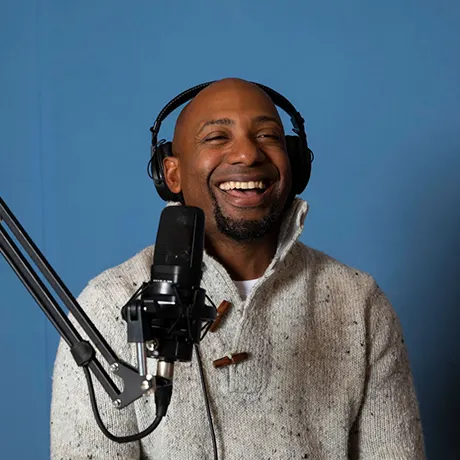
Julian Saavedra, MA
is a school administrator who has spent 15 years teaching in urban settings, focusing on social-emotional awareness, cultural and ethnic diversity, and experiential learning.
Latest episodes
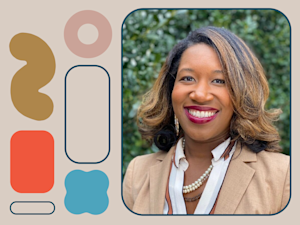
April 10, 2024
Myths and misinformation about ADHD and learning differences show up all the time on social media. Find out what’s fact and what’s fiction, and learn about the impact of these myths on kids of color.
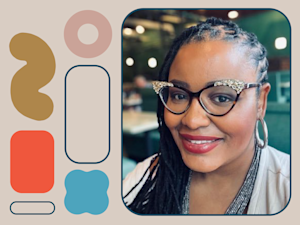
March 27, 2024
ADHD advocate René Brooks was diagnosed with ADHD twice as a child. But it wasn’t until she was diagnosed again as an adult that she finally got support. Listen to her story.
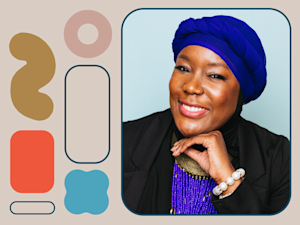
March 13, 2024
Learn about the steps to getting an IEP and starting your child’s special education program. Get tips from an expert.

February 14, 2024
Learn how four members of the Understood team are making an impact in the lives of people with learning and thinking differences.
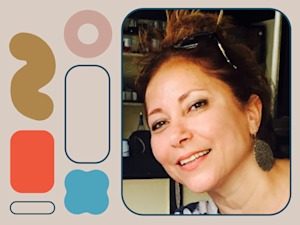
January 31, 2024
How can high-schoolers and their families prepare for life after high school? Get advice and tips from a college advisor.

January 17, 2024
Some kids don’t like to share information about their school day. Get tips on how to get them to open up and share. These tips and conversation starters can help your child to open up.
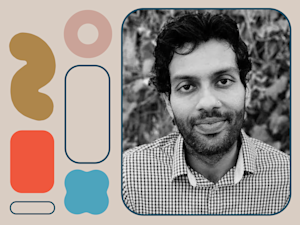
January 3, 2024
The school-to-prison pipeline has disrupted education for kids of color for a long time. Learn what the pipeline is and why it’s critical to end it.
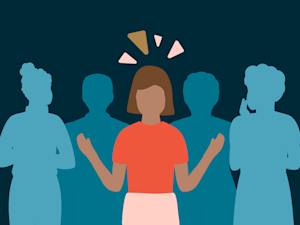
December 6, 2023
Telling your relatives about your child’s challenges can be difficult. Get tips on how to make the talk easier to manage.

November 8, 2023
For some students of color, feeling mistreated by teachers is a common experience — and it shouldn’t be. Learn how to help kids self-advocate.
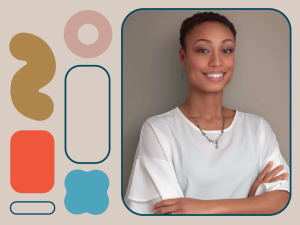
October 25, 2023
Dyslexia is a common learning difference that impacts many kids of color. Hear from an expert and learn ways to support kids in the classroom.
